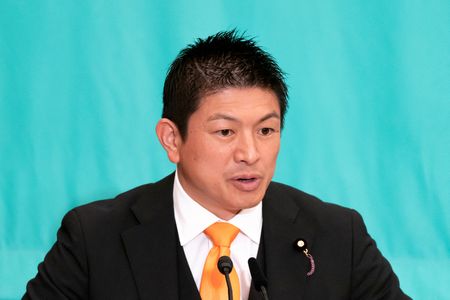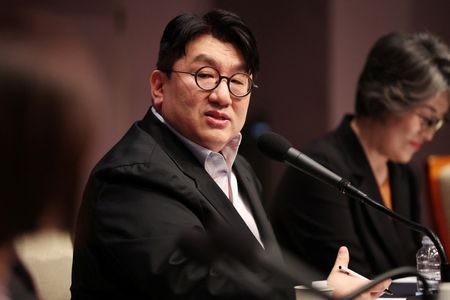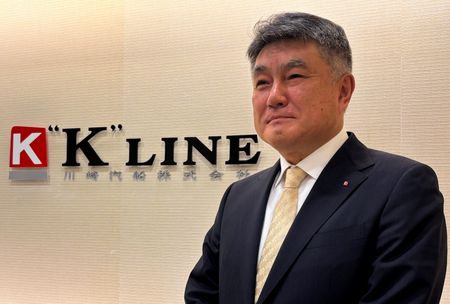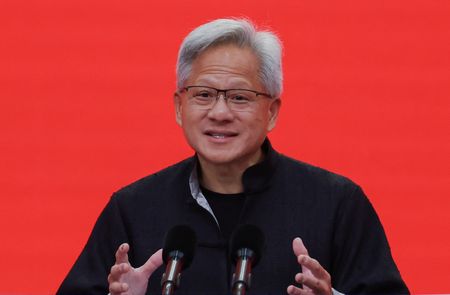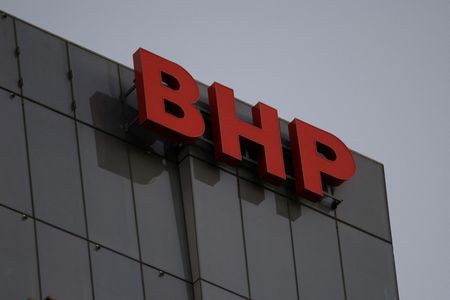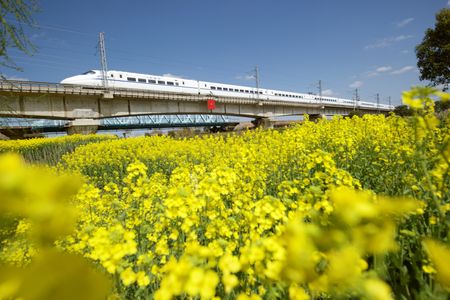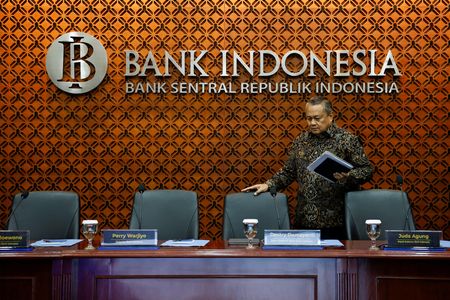By Takaya Yamaguchi and Leika Kihara
TOKYO (Reuters) -The Bank of Japan should hold off raising interest rates until the economy achieves a stronger recovery, Sohei Kamiya, head of the small opposition party Sanseito said ahead of an upper house election, warning against a premature hike in borrowing costs.
“Corporate bankruptcy cases aren’t declining and real wages aren’t necessarily rising yet. The economy doesn’t appear to be heading toward strong growth,” Kamiya told Reuters on Tuesday.
“The BOJ should spend more time scrutinising the economy and be cautious about raising interest rates,” he said, when asked whether the central bank should hold off hiking rates for the rest of this year.
The remarks highlight political headwinds the BOJ could face after an upper house election on Sunday in proceeding with its plan to raise interest rates, still at 0.5%, and normalise monetary policy.
Recent media polls have shown Japan’s ruling coalition could lose its majority in the upper house, drawing attention to opposition parties like Sanseito that may influence government policies depending on the outcome of the election.
A small populist party founded in 2020, Sanseito has seen public support rise sharply, with daily newspaper Yomiuri predicting on Wednesday the party could win more than 10 seats in the upper house, up from just two currently.
Japan’s upper house has 248 seats, of which 125 are for grabs in Sunday’s election. Depending on the outcome of the election, Sanseito may emerge as the third or fourth largest opposition party in the chamber and hold a key role in passing through legislation.
Prime Minister Shigeru Ishiba’s ruling coalition has given a quite nod to gradual BOJ rate hikes, as has the biggest opposition Constitutional Democratic Party of Japan. Smaller opposition forces like the Democratic Party for the People have warned against near-term hikes in borrowing costs.
Sanseito’s Kamiya said he had “absolutely no plan” of joining the ruling coalition after the election, saying his party must focus on solidifying its base to become a stronger force in parliament in the future.
“When the party wins, say, 40 to 50 seats, that’s when we’d like to strive to join a coalition and become a ruling party,” he added.
Kamiya also said Japan should cut the sales tax rate to cushion the economic blow from rising living costs, but do so gradually to avoid triggering a bond market selloff.
(Reporting by Takaya Yamaguchi and Leika Kihara; Editing by Jamie Freed)

